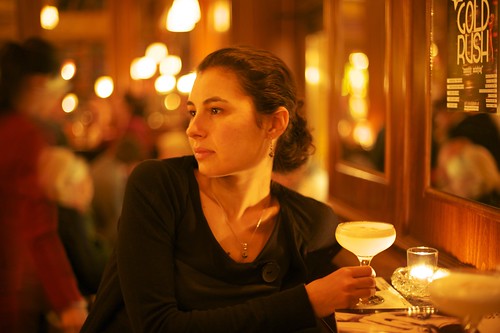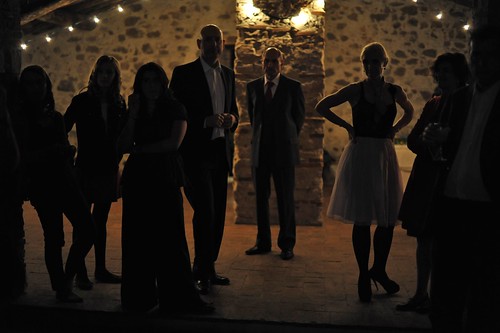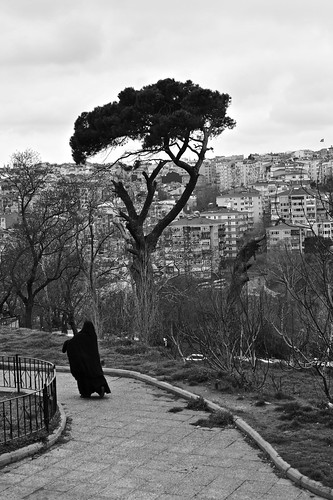A Blog of morning coffee, political views, and highly subjective perspectives on the world
Tuesday, December 13, 2011
Tuesday, October 11, 2011
Sunday, September 25, 2011
Saturday, September 17, 2011
Alea Jacta Est! Quid Prodest?
Alea Jacta Est! Quid Prodest?
Mahmoud Abbas decided that he has nothing to lose and he went for broke. The head of the PA knows that the approach to the UN will not pass the UNSC and the veto of the US. Equally he is aware he will not have a majority of EU states supporting the unilateral step. However, he believes his and Fatah’s positions - and electoral chances next year - are better served by what appears as a strong, principled and maximal position. Regardless of the result of a UNGA vote he appears as the staunch partisan and supporter of Palestinian interests. All while strongly emphasizing the importance of achieving independence via exclusively non-violent means. In contrast to Hamas, he positions himself and the PA as the democratic partner for peace and legitimate defender of the Palestinian cause. To some extent this is true and it is creating a huge pressure on both the Obama Administration and the Netanyahu government in Israel. However this may not further the chances for a functional Palestinian state. The speech and the request contained does not change the fact that the entire thing is a dead-end. Nothing will change on the ground and high and unrealistic expectations - partially fueled by the stance of the likes of Turkey’s PM Erdogan and the new Egyptian administration - will be soon quashed. Considering the fact that Hamas already distanced itself from the demarche, too aware that regardless of the outcome they suffer a PR setback, the chances for a unity Palestinian government are slimmer by the day. Even if we assume this is a correct moral position by the PA this is not a serious and responsible step towards a two state solution and lasting peace. The PA and Abbas, and with them West Bank prime minister Salam Fayyad, gain a symbolic victory but they may end up drawing the short straw when it comes to the cash-in of this entire saga. The other clear looser is Netanyahu. He is shown as the intransigent party incapable of creating the condition for compromise and fully responsible for the “last resort and not by choice unilateral” measure by the PA. Above all Palestinians and Israelis may end up being the bigger losers and with them also the citizens of some the region’s most undemocratic regimes. The context is flammable and tense. Extreme violence is not a remote possibility and many parties in the region believe an open conflict or serious crisis would solve their bigger domestic problems. The Palestinians may be right in their objective to establish a functional state but they are definitely not using the right means. The importance and failure of achieving a Palestinian unity is covered up by a huge smokescreen. But the smoke will raise soon enough and at the end of the day a new process needs to emerge replacing the stalemate and intrenched positions. For that reason maybe the entire debacle is not without merits.
Mahmoud Abbas decided that he has nothing to lose and he went for broke. The head of the PA knows that the approach to the UN will not pass the UNSC and the veto of the US. Equally he is aware he will not have a majority of EU states supporting the unilateral step. However, he believes his and Fatah’s positions - and electoral chances next year - are better served by what appears as a strong, principled and maximal position. Regardless of the result of a UNGA vote he appears as the staunch partisan and supporter of Palestinian interests. All while strongly emphasizing the importance of achieving independence via exclusively non-violent means. In contrast to Hamas, he positions himself and the PA as the democratic partner for peace and legitimate defender of the Palestinian cause. To some extent this is true and it is creating a huge pressure on both the Obama Administration and the Netanyahu government in Israel. However this may not further the chances for a functional Palestinian state. The speech and the request contained does not change the fact that the entire thing is a dead-end. Nothing will change on the ground and high and unrealistic expectations - partially fueled by the stance of the likes of Turkey’s PM Erdogan and the new Egyptian administration - will be soon quashed. Considering the fact that Hamas already distanced itself from the demarche, too aware that regardless of the outcome they suffer a PR setback, the chances for a unity Palestinian government are slimmer by the day. Even if we assume this is a correct moral position by the PA this is not a serious and responsible step towards a two state solution and lasting peace. The PA and Abbas, and with them West Bank prime minister Salam Fayyad, gain a symbolic victory but they may end up drawing the short straw when it comes to the cash-in of this entire saga. The other clear looser is Netanyahu. He is shown as the intransigent party incapable of creating the condition for compromise and fully responsible for the “last resort and not by choice unilateral” measure by the PA. Above all Palestinians and Israelis may end up being the bigger losers and with them also the citizens of some the region’s most undemocratic regimes. The context is flammable and tense. Extreme violence is not a remote possibility and many parties in the region believe an open conflict or serious crisis would solve their bigger domestic problems. The Palestinians may be right in their objective to establish a functional state but they are definitely not using the right means. The importance and failure of achieving a Palestinian unity is covered up by a huge smokescreen. But the smoke will raise soon enough and at the end of the day a new process needs to emerge replacing the stalemate and intrenched positions. For that reason maybe the entire debacle is not without merits.
Friday, September 16, 2011
Tuesday, September 13, 2011
Se préparer au pire, pour l’éviter – Jacques Attali
Se préparer au pire, pour l’éviter – Jacques Attali
Jacques Attali’s nightmare scenario for Europe and the world financial system. A bit overboard but intended as a warning mainly for the political class caught in small time bickering, populist posturing and overall politicking. The time for “too little too late” and “let’s do this and then see what happens” has gone. Good timing also in his request for a serious debate on a very serious set of scenarios: right before the IMF and WB annual board meeting in Washington next week. Unfortunately I believe it will be met with the same obtuse and partisan attitude like Obama’s American Jobs Act. Here the divide however does not fall exclusively on an ideological faultline.
Jacques Attali’s nightmare scenario for Europe and the world financial system. A bit overboard but intended as a warning mainly for the political class caught in small time bickering, populist posturing and overall politicking. The time for “too little too late” and “let’s do this and then see what happens” has gone. Good timing also in his request for a serious debate on a very serious set of scenarios: right before the IMF and WB annual board meeting in Washington next week. Unfortunately I believe it will be met with the same obtuse and partisan attitude like Obama’s American Jobs Act. Here the divide however does not fall exclusively on an ideological faultline.
Monday, September 12, 2011
Sunday, September 11, 2011
September
September 11, 2011
When I have first returned, years latter, I felt the loss by just looking at the skyline. And I feel it every time I happen to see it be it in a movie, a photograph, or real life. I feel like many others that while I was never a New Yorker the city is mine as well.
I was in NY on September 10. That evening I returned to Boston where I was in graduate school. Next day, at about the same time the highjackers were boarding their planes a few miles away at Logan Airport, I was listening to music and working on my computer on the back porch of my apartment. When the phone rung and my girlfriend told me about the first plane I was convinced it is a docu-fiction airing on TV. Little did I know what was coming. For the next hours, days and weeks I lived in the rhythm of the events. My five hours per week research assistantship in crisis management for a Fletcher School professor at the Security Studies Department turned into an almost full time job. I am convinced the attacks played an important part in my decision to return to Romania and continue my work at the MFA. Ever since in one way or another my work and my life is shaped by that choice.
I went back to NY a few weeks later and the smell of the city then haunts me to this day. In many ways I was in the ideal place to try to make sense of what was happening and what was to come. As student at a top graduate school for international relations, I was blessed with professors and colleagues sharing my questions and attempts for answers. This made it somehow more bearable despite the utter dismay, pain and shock we all felt. Due to the presence of several American colleagues that were on active or reserve military duty I felt the tension of preparations. I had several American colleagues that disappeared from class in the days and weeks following the attack. We all knew. We had a group of serving diplomats from around the world and the legal and practical implications were considered at length. Due to the presence of several Afghan colleagues I was familiar with the territory and the reality of the country. I had met just a few weeks prior Abdulah Abdulah, the US trained doctor serving as the Northern Alliance’s spokesperson and foreign representative. Also, several of my friends at school were Muslim Americans, Pakistanis or from Kashmir. For all those reasons I had an apprehension about the things to come. Afghanistan was to be quickly followed by Iraq. And the narrative of freedom and defending the Western world from terrorism turned into the dour reality of the ongoing “war on terror”. Camps, renditions, torture, death, suicide attacks and civilian victims are the daily litany of horrors.
Eric Hobsbawm had made famous the concept of his short century, condensed between 1914 and 1991. He was talking about its indelible marks: World War I, Wall Street Crash, World War II, Holocaust, Atomic War, Cold War, Fall of the Berlin Wall and Communism. So much barbarism, violence and irrational hatred condensed in that brief century. It appears to me the morning of September 11 had all the same characteristics for the current century. Was this to be the mark of yet another short century? Two wars later it certainly appears so. The economic crisis on 2007 and the current global recession make things even more complicated as witnessed by the sovereign debt and deficit debates shared on both side of the Atlantic. However, I believe and I hope we will stop short of the calamitous and suicidal errors of the previous century. The new ideologies however manic and criminal they are they also lack the stamina and murderous coherence involving states. Maybe, just maybe, we have learned enough from our past mistakes to avoid the worse despite making daily mistakes and horrible policy choices. How we mange the events in Syria, the ongoing crisis in Israel and Palestine, Iran, Turkey’s growing role and increasing dis-alignment with the West, all will come to define this, our Century.
At the Aspen Ideas Festival this summer, Thomas Friedman said he was disappointed that while the cold war made the world put a man on the moon the war on terror led to better body scanners. That is in his opinion the gap of achievement or the failure of using the opportunity of this terrible crisis for the Western world. It remains to be seen. In many ways this is why I was saddened by the Ground Zero mosque controversy and the lack of ability to seize on an opportunity to bridge the divide. If president Obama’s vision for a New Beginning is to come true, in a few decades, we may look at this with a different view. With the Arab revolutions in full swing one needs to look at the future with some hope. The challenges of the present are impossibly complex and the outcome of the transformation is far from unwaveringly positive. With the capture and death of Osama bin Laden we are entering a new phase. This is one is of attrition, as Al Qaida is waning and its capacity to mount serious operations diminishes the probability of another large-scale attack is gone. This is the end result for which a huge human cost was paid in the last decade. The number of threats is however increasing and the homegrown terrorism and self-radicalized youth are a yet to be a fully understood threat. This is why the effort to address civilization and cultural divides is equally important. Attacks in the US and Europe by both islamists and radical right show that irrational hatred continues to be a fundamental threat to our values. We have to address these challenges spanning inside and outside the geography of the West. I am convinced, if the values of freedom and of humanism we inherited from the enlightenment are to prevail, they will do so only together.
I used to do my long runs around the southern tip of Manhattan. The first time I did so upon returning to America the towers were no longer there. I still do it every time I visit NY and often I stop at Battery Park and look back at where they should be. These days construction crews are busy building and this is a sign of resilience and maybe of healing. I also think about those that perished then and in the past decade. May they rest in peace and their memory be preserved.
This is dedicated to the memory of Ben Sklaver
Andrei Tarnea
When I have first returned, years latter, I felt the loss by just looking at the skyline. And I feel it every time I happen to see it be it in a movie, a photograph, or real life. I feel like many others that while I was never a New Yorker the city is mine as well.
I was in NY on September 10. That evening I returned to Boston where I was in graduate school. Next day, at about the same time the highjackers were boarding their planes a few miles away at Logan Airport, I was listening to music and working on my computer on the back porch of my apartment. When the phone rung and my girlfriend told me about the first plane I was convinced it is a docu-fiction airing on TV. Little did I know what was coming. For the next hours, days and weeks I lived in the rhythm of the events. My five hours per week research assistantship in crisis management for a Fletcher School professor at the Security Studies Department turned into an almost full time job. I am convinced the attacks played an important part in my decision to return to Romania and continue my work at the MFA. Ever since in one way or another my work and my life is shaped by that choice.
I went back to NY a few weeks later and the smell of the city then haunts me to this day. In many ways I was in the ideal place to try to make sense of what was happening and what was to come. As student at a top graduate school for international relations, I was blessed with professors and colleagues sharing my questions and attempts for answers. This made it somehow more bearable despite the utter dismay, pain and shock we all felt. Due to the presence of several American colleagues that were on active or reserve military duty I felt the tension of preparations. I had several American colleagues that disappeared from class in the days and weeks following the attack. We all knew. We had a group of serving diplomats from around the world and the legal and practical implications were considered at length. Due to the presence of several Afghan colleagues I was familiar with the territory and the reality of the country. I had met just a few weeks prior Abdulah Abdulah, the US trained doctor serving as the Northern Alliance’s spokesperson and foreign representative. Also, several of my friends at school were Muslim Americans, Pakistanis or from Kashmir. For all those reasons I had an apprehension about the things to come. Afghanistan was to be quickly followed by Iraq. And the narrative of freedom and defending the Western world from terrorism turned into the dour reality of the ongoing “war on terror”. Camps, renditions, torture, death, suicide attacks and civilian victims are the daily litany of horrors.
Eric Hobsbawm had made famous the concept of his short century, condensed between 1914 and 1991. He was talking about its indelible marks: World War I, Wall Street Crash, World War II, Holocaust, Atomic War, Cold War, Fall of the Berlin Wall and Communism. So much barbarism, violence and irrational hatred condensed in that brief century. It appears to me the morning of September 11 had all the same characteristics for the current century. Was this to be the mark of yet another short century? Two wars later it certainly appears so. The economic crisis on 2007 and the current global recession make things even more complicated as witnessed by the sovereign debt and deficit debates shared on both side of the Atlantic. However, I believe and I hope we will stop short of the calamitous and suicidal errors of the previous century. The new ideologies however manic and criminal they are they also lack the stamina and murderous coherence involving states. Maybe, just maybe, we have learned enough from our past mistakes to avoid the worse despite making daily mistakes and horrible policy choices. How we mange the events in Syria, the ongoing crisis in Israel and Palestine, Iran, Turkey’s growing role and increasing dis-alignment with the West, all will come to define this, our Century.
At the Aspen Ideas Festival this summer, Thomas Friedman said he was disappointed that while the cold war made the world put a man on the moon the war on terror led to better body scanners. That is in his opinion the gap of achievement or the failure of using the opportunity of this terrible crisis for the Western world. It remains to be seen. In many ways this is why I was saddened by the Ground Zero mosque controversy and the lack of ability to seize on an opportunity to bridge the divide. If president Obama’s vision for a New Beginning is to come true, in a few decades, we may look at this with a different view. With the Arab revolutions in full swing one needs to look at the future with some hope. The challenges of the present are impossibly complex and the outcome of the transformation is far from unwaveringly positive. With the capture and death of Osama bin Laden we are entering a new phase. This is one is of attrition, as Al Qaida is waning and its capacity to mount serious operations diminishes the probability of another large-scale attack is gone. This is the end result for which a huge human cost was paid in the last decade. The number of threats is however increasing and the homegrown terrorism and self-radicalized youth are a yet to be a fully understood threat. This is why the effort to address civilization and cultural divides is equally important. Attacks in the US and Europe by both islamists and radical right show that irrational hatred continues to be a fundamental threat to our values. We have to address these challenges spanning inside and outside the geography of the West. I am convinced, if the values of freedom and of humanism we inherited from the enlightenment are to prevail, they will do so only together.
I used to do my long runs around the southern tip of Manhattan. The first time I did so upon returning to America the towers were no longer there. I still do it every time I visit NY and often I stop at Battery Park and look back at where they should be. These days construction crews are busy building and this is a sign of resilience and maybe of healing. I also think about those that perished then and in the past decade. May they rest in peace and their memory be preserved.
This is dedicated to the memory of Ben Sklaver
Andrei Tarnea
Monday, July 18, 2011
Saturday, April 23, 2011
Subscribe to:
Posts (Atom)





